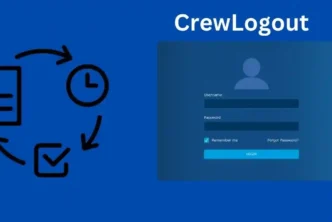A virtual private server (VPS) is a popular choice for hosting websites, applications, and other online services. Unlike shared hosting, VPS provides you with dedicated resources, greater control over your server, and enhanced security. But when it comes to paying for a VPS server, you may wonder what the best payment method is. In this article, we will discuss the different payment methods available, their advantages and disadvantages, and which one may be the best for you.
Payment Methods for VPS Servers
- Credit or Debit Card One of the most common payment methods for VPS servers is using a credit or debit card. This method is simple and convenient, as you can easily enter your card details and complete the payment process. However, using a credit or debit card may put your financial information at risk if the VPS provider’s website is not secure. You should always make sure that the website is using SSL encryption to protect your card details. Additionally, some VPS providers may charge extra fees for credit or debit card payments, so make sure to read the terms and conditions carefully.
- PayPal Another popular payment method for VPS servers is PayPal. This payment system is widely accepted by many VPS providers and offers a high level of security for your financial information. PayPal allows you to link your bank account or credit card to your PayPal account and make payments without sharing your financial details with the VPS provider. However, some VPS providers may charge extra fees for PayPal payments, so make sure to check before making a payment.
- Cryptocurrency Cryptocurrency is a digital currency that uses encryption techniques to regulate the generation of units and verify the transfer of funds. It offers a high level of anonymity and security, making it an attractive payment method for VPS servers. Many VPS providers accept cryptocurrency payments, such as Bitcoin, Ethereum, and Litecoin. However, using cryptocurrency can be complicated for those who are not familiar with it. You will need to set up a cryptocurrency wallet and purchase the required amount of cryptocurrency before making a payment.
- Bank Transfer Some VPS providers also accept bank transfers as a payment method. This method involves transferring funds directly from your bank account to the VPS provider’s account. Bank transfers are secure and do not require you to share your financial information with the VPS provider. However, bank transfers can be slow and may take several days to process. Additionally, some VPS providers may charge extra fees for bank transfers, so make sure to check before making a payment.
- Electronic Funds Transfer (EFT) Electronic funds transfer (EFT) is a payment method that involves transferring funds electronically from one bank account to another. EFT is similar to bank transfers but is faster and more efficient. Some VPS providers accept EFT payments, and this method is a good choice if you need to make a payment quickly. However, not all banks support EFT payments, so make sure to check with your bank before using this payment method.
Advantages and Disadvantages of Different Payment Methods
- Credit or Debit Card Advantages:
- Simple and convenient payment method
- Can be used with most VPS providers
- Offers fraud protection and chargeback rights
- Provides immediate payment confirmation
Disadvantages:
- May put your financial information at risk if the website is not secure
- Some VPS providers may charge extra fees for credit or debit card payments
- Can lead to overspending if not managed properly
In conclusion, when it comes to paying for a VPS server, there are several payment methods available, each with its own advantages and disadvantages. Credit or debit cards and PayPal are the most common payment methods, offering convenience and security. Cryptocurrency, bank transfers, and electronic funds transfers are also viable payment options but may have certain limitations or complexities.
Choosing the best payment method for your VPS server depends on your personal preferences, budget, and level of comfort with each payment method. Before making a payment, it’s important to check with your VPS provider about any fees or restrictions associated with the payment method you choose. Additionally, it’s always a good idea to ensure that the VPS provider’s website uses SSL encryption to protect your financial information. Overall, selecting a safe and reliable payment method is essential for ensuring a smooth and secure VPS hosting experience.





